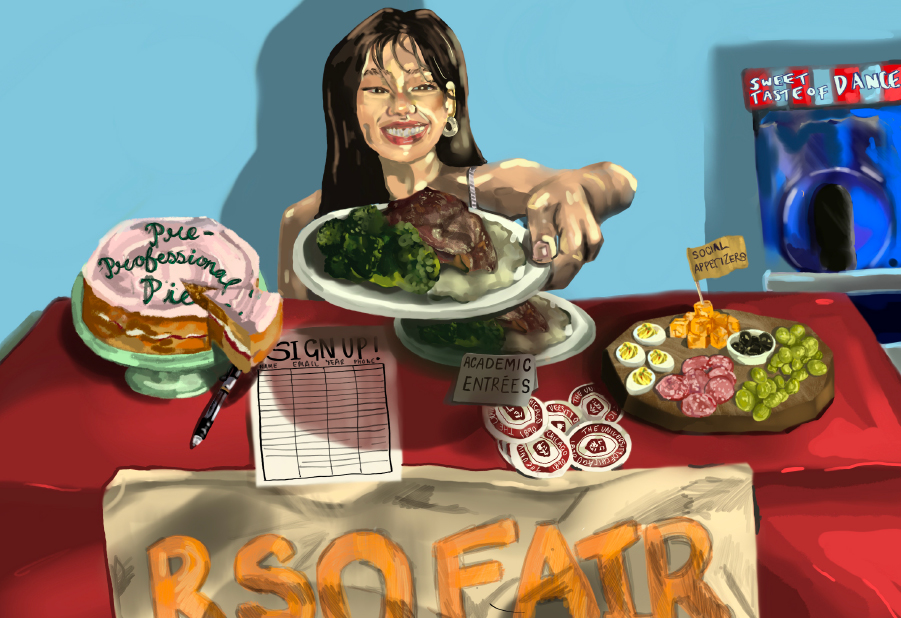At this point, many of my friends are sick of my admiration for the great Slovenian philosopher Slavoj Zizek. Whenever they come over, instead of blaring the Chainsmokers, I play viral interviews of Zizek, often showcasing my carefully studied impression of him.
I am always shocked when my gestures are met with not awe but annoyance. Perhaps Zizek’s idiosyncrasies—his thought, lifestyle, and gesticulations—are not for everyone. Redundant sometimes is the almost systematic nature of his presentation: “something something critique of ideology,” mind-boggling references to Kant and Marx, and frantic tangents that culminate in an anecdote about physicist Niels Bohr.
Unlike the popular Chainsmokers, whose song lyrics tells us to “get drunk on the good life,” underlying Zizek’s inimitable style is a serious thesis: that ideology is not dead and is the stuff that meaning is made from. That our culture and moral compass are defined by privileging some ideas over others. The Chainsmokers represent our modern political culture where hedonism is king, while Zizek triumphs philosophy for its ability to judge social arrangements and conceive of higher political possibilities.
Zizek’s defense of philosophy should appear familiar to UChicago students. Indeed, within Zizek and the Core alike we see a reliance on contemplation’s power to help us live a good life. For the principle of the Core is that there are a set of basic predicaments, questions, and experiences essential to the human condition, carefully developed and preserved by the Western canon. From its founding, our university deemed such texts too important not to be inscribed in its curriculum. That, as undergraduates, we ought to prioritize two years of contemplation, cogitating on anything from the Iliad to Hegel’s theory of consciousness, over fields of a more professional nature (post-graduate financial outcomes be damned!).
And though the University might formally refrain from social commentary (true to the dictums of the Kalven Report!), it cannot abandon its boldest political principle: that thinking about the great treasures of the canon provide guidance essential to both the most austere of scholars and the most ordinary of human beings.
The commitment to theories old and new is not some performative triumph of rarified traditions floating within history. Nor is it an aesthetic statement: We don’t have a library upon whose façade are displayed the names of Plato, Hobbes, and Foucault. (For a similar sight, visit a certain school in New York.) Instead, our principles have been reified by members of our own community: people like preeminent political theorist Leo Strauss.
My article cannot faithfully describe Strauss’ two decades at Chicago. But to put it briefly, Strauss believed that examining the canon reveals a horizon of problems that humanity has forever grappled with. What makes for good political rule? How are the philosophic life and political life in tension with one another? Do humans have political ends aside from those proclaimed by society? These puzzles constitute the lifeblood of our university. They are mystifying challenges. But for Strauss, these questions are inescapable if we hope to ever resist nihilism and admit the existence of right and wrong.
Strauss also thought that modernity imperiled political philosophy. By treating value systems as fictions and mere contingencies, social science and historicism obliterate the possibility of objective truth. Modernity has made our world “unintelligible” to us, aborted reason’s sovereignty, and rendered the pursuit of wisdom, philosophy itself, impossible. So with little recourse to a contemplative life, modern politics makes its appeals not to our reason but to our biologically ordained self-interest (like material prosperity).
But if we were to take off our Chicago hats for just a moment and realize that Donald Trump is president, these considerations would appear foreign, ethereal, and pompous. Today we face a crisis caused by the perils of political polarization, erosion of democratic consensus, and the daily absurdities of a mindless president incontinent enough to sacrifice love of country for his own ego. These are serious, dangerous, and existential. So perhaps even arguing that we ought to spend more time bloviating over philosophers of centuries-past is an objectionably privileged stance, too divorced from the tangible horrors of today’s politics. Strangely enough, such an argument is common even on our notoriously theory-loving campus. Yet I insist that the more longstanding, if not subtler, tragedy is the endless violence done to our status as reasoning creatures and the failure to support unshakeable moral tenets over pure hedonism.
In the era of Trump, economic anxieties and prejudices have exploded the excesses of our social order and have been used against the liberal democratic principles (from the rule of law to property rights) no longer capable of quietly sustaining our grand system of selfishness. Even the few calls for decency we see today are radically incapable of escaping the flawed logic of a society whose supreme political principles are those of productivity, economic efficiency, and self-interest.
As a result of our increasingly immoral political moment, otherwise well-intentioned liberals and concerned citizens tailor their defense of Dreamers with the basest of bad appeals—that rescinding DACA will harm the U.S. economy and deprive thousands of their God-given mandate to grow the American GDP. Woe unto the sap who cares about the inherent equality of all human beings over dignity predicated merely upon one’s productivity! Or take Barack Obama’s recent recommendation of “setting ideology aside” to fix the American health care system. In spite of my reverence for him, whose presidency is now becoming but a cruel fantasy trapped within the West Wing, Barack Obama is categorically wrong. Ideology informs us and progressives like the 44th president that health care is a right in the first place. A more shortsighted, pragmatic assessment of today’s politics would suggest otherwise, and to the detriment of millions of Americans. Rebuking the potential power of ideology is not just deeply unimaginative; it’s dangerous. Thoughtful rumination over our society’s values are what should ground our conception of good policymaking—not the ugly valorization of “subjective choice preferences,” utility maximization, and technocratic zealotry.
If we are ever to recover political legitimacy, we must champion the Core and its defense of the “life of the mind.” Anything short from the University of Chicago only harms us and emboldens flawed social arrangements and thereby the hilarious, dumb, and evil despotism that has been unleashed upon America.
Henry Saroyan is a second-year in the College majoring in political science.







